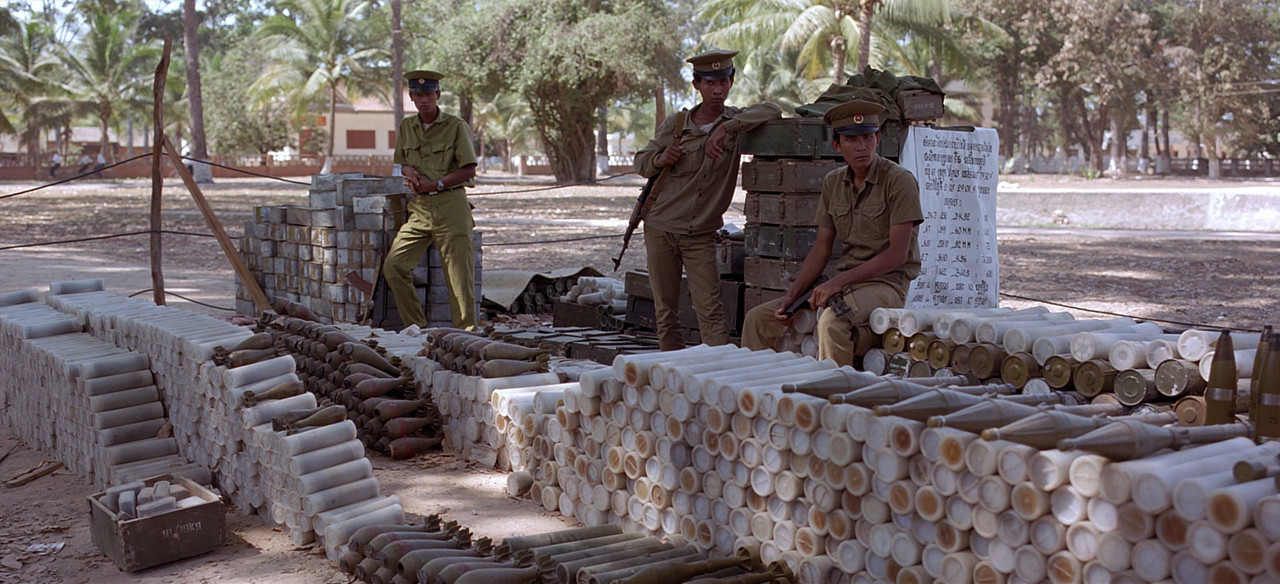Baraka (1992) is cowardly
19/08/2024
- Epnr
19/08/2024
- Epnr
Cowardice is not often a word used when describing films, but it is the only word that truly captures what is wrong with Baraka (1992). A film too scared to engage with its subjects, too scared to engage with its own form. Vague gestures towards spirituality that in actuality are just the same rote new age obsessions with global tradition, with no attempt to engage in those cultures beyond the visual power that they hold. This refusal to engage is so insidious it enters how the film engages with history. In the most cowardly, disgusting part of the film, it cuts from a factory worker watching fire to the inside of a gas chamber in the Auschwitz concentration camp. This cut not only brings forth the horrors of the gas chambers in a vulgar way, it also implicates the factory workers by positioning them in the place of SS officers, as if the working man is even remotely comparable to the men who oversaw the chambers. This choice is vile, but it is not without precedent, everything in this world exists for the satisfaction of the director in Baraka– nothing sacred is safe from the vulgarisation of the camera, no material is spared from associative cutting.

Baraka is as capitalist as the system it feigns commentary on, everything of value must be stripped into a spectacle removed from its history. Cutting from Khmer fascists to Chinese government personnel, from statues of the people's revolution to the terracotta army– drawing lines that don’t exist except in the mind of historically ignorant westerners. The voyeurism so close to the core of the film's form so clearly stems from this ignorance. To be this ignorant after travelling to these places, seeing these people, surely you would have had to listen prior to filming them? Ignorance is no longer an excuse after this, it is a choice. Really, it’s no surprise that there’s no listening in Baraka, there’s no space for it. There is no room to listen and understand when your understanding of the world is as simple as Aboriginal Australians or Indonesian people as closer to a cosmic purity (note all of the shots that aim up towards the sky) than Japanese people living under capitalism.
This notion of a cosmic purity is something so common in the hack spiritual films that have been released over the past few decades (Tree of Life, The Fountain). A belief that humanity has corrupted something inalienable in the universe, while it's true that the capitalist system is destroying the world and culture, films like Baraka seek to find a solution in the immaterial. There is no spiritual solution to the existential threats to all life, only material, it’s telling that these films are so accepted by the liberal status quo as they serve no threat. These films use cinema as a tool of placation and distancing from an understanding of the true struggle.